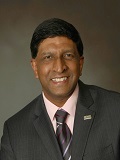|
 Andy Curtis Andy Curtis
|
|
 Kari Naumova Kari Naumova
|
In 2012, Retired Brigadier General, Thomas A. Kolditz, a former chairman of the Department of Behavioral Sciences and Leadership at West Point, was appointed as the Director of the Leadership Development Program at the Yale University School of Management. Prior to that appointment, Kolditz published a blog post in the Harvard Business Review (HBR) titled, ‘Why the Military Produces Great Leaders,’ which starts with him stating his central assumption and asking/answering a key (rhetorical) question: “military service – particularly service in the crucible of combat – is exceptionally effective at developing leaders. Why? It’s nurture, not nature” (Kolditz, 2009). Kolditz gave three main reasons in support of his claim:
“First, in all services, military leadership qualities are formed in a progressive and sequential series of carefully planned training, educational, and experiential events – far more time-consuming and expensive than similar training in industry or government. Secondly, military leaders tend to hold high levels of responsibility and authority at low levels of our organizations. Finally, and perhaps most importantly, military leadership is based on a concept of duty, service, and self-sacrifice; we take an oath to that effect” (Kolditz, 2009).
Kolditz concluded his HBR blog post with four important questions that can (and should) be asked by anyone already in, or about to take on, a leadership role, not only in the military, but also in language education: “In your own development as a leader, have you found value in putting other people first? Did it seem out of place in competitive, results-oriented businesses? Did it powerfully influence people, or did it merely suggest weakness? And have you had role models in business who you see as effective because of their servant leader orientation?” Although the questions may be considered to be somewhat leading, as it is quite clear what answers are expected/hoped for, they are nonetheless useful for us to ask, to answer, and to review periodically.
The United States Military Academy at West Point describes itself, on its main webpage, as “The Pre-Eminent Leader Development Institution” whose mission is “to educate, train, and inspire the Corps of Cadets so that each graduate is a commissioned leader of character committed to the values of Duty, Honor, Country and prepared for a career of professional excellence and service to the Nation as an officer in the United States Army” (https://www.westpoint.edu/about).
Another West Point connection is Dr. Jeff Watson (who asked that his real name be used in this article, henceforth, in this article, “JW”), who is the current Chair of Linguistics and Language Acquisition in the Center for Languages, Cultures, & Regional Studies at West Point. Dr. Watson received a PhD in Russian and Second Language Acquisition from Bryn Mawr College (Pennsylvania, USA), and a Master’s in Teaching Foreign Language from the Middlebury Institute of International Studies (MIIS, California, USA). Therefore, the past-present MIIS-connection facilitated meaningful trust-building between the interviewer and the interviewee, albeit it historic one, and via a third party, i.e., the professor who assigned the interview as an assessed task on a course which is based on the book, Reflecting on Leadership in Language Education (Curtis, 2022).
Military Leaders and TESOL Leaders
In November of 2022, JW kindly agreed to be interviewed by one of the co-authors of this article, using the four key questions on which the book, Reflecting on Leadership in Language Education (Curtis, 2022) is based. The four questions are as follows:
“Question One: Please give a brief summary of your first role as a leader in language education and where you are now professionally, in terms of leadership.
Question Two: What do you understand by the term ‘Reflective Practice’ (RP)? What does ‘RP’ mean to you? What do you think of when you hear or read the phrase ‘RP’?
Question Three: How do you engage in RP? What are some of the challenges you have faced when engaging in RP? How did/do you address/meet those challenges?
Question Four: Think of a leadership challenge you faced some time ago. Describe that challenge, how you met/coped with that challenge, and what advice you would give someone facing a similar challenge. Or, instead of giving advice, you can describe what you would do differently now, with benefit of experience and hindsight, if you faced a similar challenge today” (Curtis, 2022, pp. 8-9).
If those questions above were to be re-written today, they would perhaps be shorter, with less question-embedding, for example, Question 2 includes three embedded questions, but which are all, in effect, asking the respondent to reflect on what “RP” means to them, as the term can mean different things to different people. That personalized, self-defining nature of RP is a positive aspect of this kind of on-going teacher professional development, as such development is most effective when it is customized to the individual experiences of each teacher (Curtis, 2022a, p. 9).
During the interview, JW chose to focus a significant part of the interview on Question 2, above, i.e. what RP means to him. This is the first part of JW’s response to the second set of questions:
“That's what I think about reflective practice, it's really understanding your context, the context of your teaching or the context of your leadership and what you're trying to promote. And, of course, it has to do with interpersonal skills, it has to do with listening, and yeah – you're going to ruffle feathers.”
As we can see, the criticality of context is fore-fronted in this part of JW’s response, which concurs with other work in the field of TESOL (see, for example, Curtis, 2017) highlighting the importance of the uniqueness of every teaching and learning context and situation. Further unpacking JW’s quote, while the notion of “interpersonal skills” covers almost too many areas to focus on, JW sees within that broad array of communicative competencies, the value of listening, perhaps even more important than the other language modalities when trying to more fully and more deeply understand the context in which one is managing and/or leading. Lastly, JW refers to “ruffling feathers”, defined as an informal idiom, meaning “to upset or offend people” (Merriam-Webster, 2022 https://www.merriam-webster.com/dictionary/ruffle%20feathers). This too concurs with a number of the recent writing of leaders in language education (Curtis, 2022) who have had to accept the fact that not only will the decisions they make be unpopular with some staff, but also that it is not possible to be an agent of positive change and innovation without sometimesruffling some feathers.
Teacher as “Transformative Intellectual”
One of the most prominent recurring themes in the interview with JW was his references to what Kumaravadivelu (2013) referred to, in his book, Beyond Methods: Macrostrategies For Language Teaching, as “the transformative intellectual,” for example: “By requiring teachers to be socio-politically conscious and to be assertive in acting upon their sociopolitical consciousness, the concept of teachers as transformative intellectuals stretches their role beyond the borders of the classroom” (Kumaravadivelu, 2013, p. 14, emphasis added). The notion that we are “beyond methods” in the field of TESOL and foreign language education has been vigorously challenged. For example, Curtis, (2017) argued that these methods still appear to be used in language classroom around the world every day. If so, that makes our field, therefore, not “post-methods” but “post post-methods,” in which we recognize and appreciate the importance of “context-dependent methodologies” rather than the “one-size-fits-all” approach to methods and methodologies that dominated our field for many decades, and which is still a problem today (Curtis, 2017, pp. 18-20 & pp. 200-202). However, the idea of teachers as transformative intellectuals clearly resonated with JW, influencing his work as a leader in both the military and TESOL contexts, as these extracts from the interview illustrate:
“I was thinking about this idea of a transformative intellectual as kind of this third stage after the reflective practitioner, and I didn’t really understand that when I first read the [Kumaravadivelu, 2013] book ...
This idea of this transformative intellectual where you promote this idea that the student is in charge and in control of his learning environment, of the learning process ...
This transformer – yes, you’re reflecting on the context, on the learning process, your own learning, their learning and, at the same time, inspiration. You're inspiring, you’re motivating outside of class ...
To really be a transformative intellectual – you’re promoting this love of learning, you’re promoting this idea that learning is something that doesn't just happen in the classroom. It happens whenever you're interacting with these people ...” (emphases added).
As we can see from the interview extracts above, JW sees many points of connectedness between his work as a leader and Kumaravadivelu’s (2013) notion of the teacher as a transformative intellectual, as opposed to, for example, the teacher as a technician, in which teachers are de-valued and de-skilled to the point of being little more than deliverers of whatever the next unit in the prescribed textbook dictates (Curtis, 2017).
Brief, Concluding Thoughts: TESOL Teachers as “Transformed Intellectuals”
As other critical appreciations of Kumaravadivelu’s “post-methods” publications have pointed out (see, for example, Thornbury, 2009), while Kumaravadivelu claims to be writing with teachers in mind, he tends to write as one intellectual/academic/scholar to another, which is reflected in his more theoretical postulations regarding what actually happens in our every-day teaching-learning language classrooms. Therefore, it is likely that, in addition to TESOL educators being transformative intellectuals, we are equally and bi-directionally acted upon and transformed by our learners, connecting theory and practice, in the same ways as JW does, so that they may feed into and come out of each other in ways that are mutually beneficial.
References
Curtis, A. (2017). Methods and Methodologies for Language Teaching: The Centrality of Context. London, UK: Palgrave Macmillan.
Curtis, A. (Ed.). (2022). Reflecting on Leadership in Language Education. Equinox Press (UK): https://www.equinoxpub.com/home/reflecting-leadership/
Kolditz, T. (2009, February 6). Why the Military Produces Great Leaders. Harvard Business Review. https://hbr.org/2009/02/why-the-military-produces-grea
Kumaravadivelu, B. (2006). Beyond methods: Macrostrategies for Language Teaching. Orient Longman.
Thornbury, S. (n.d.). Methods, post-method, and Métodos. TeachingEnglish. https://www.teachingenglish.org.uk/article/methods-post-method-and-metodos
Kari Naumova is a language instructor to military personnel and a current graduate student at MIIS studying Teaching Foreign Language and Language Program Administration.
From 2015-2016, Andy Curtis served as the 50th President of TESOL International Association. He has (co)authored and (co)edited 200 publications, presented to 50,000 language educators in 100 countries, and his work has been read by 100,000 language educators in 150 countries. He is based in Ontario, Canada. |

